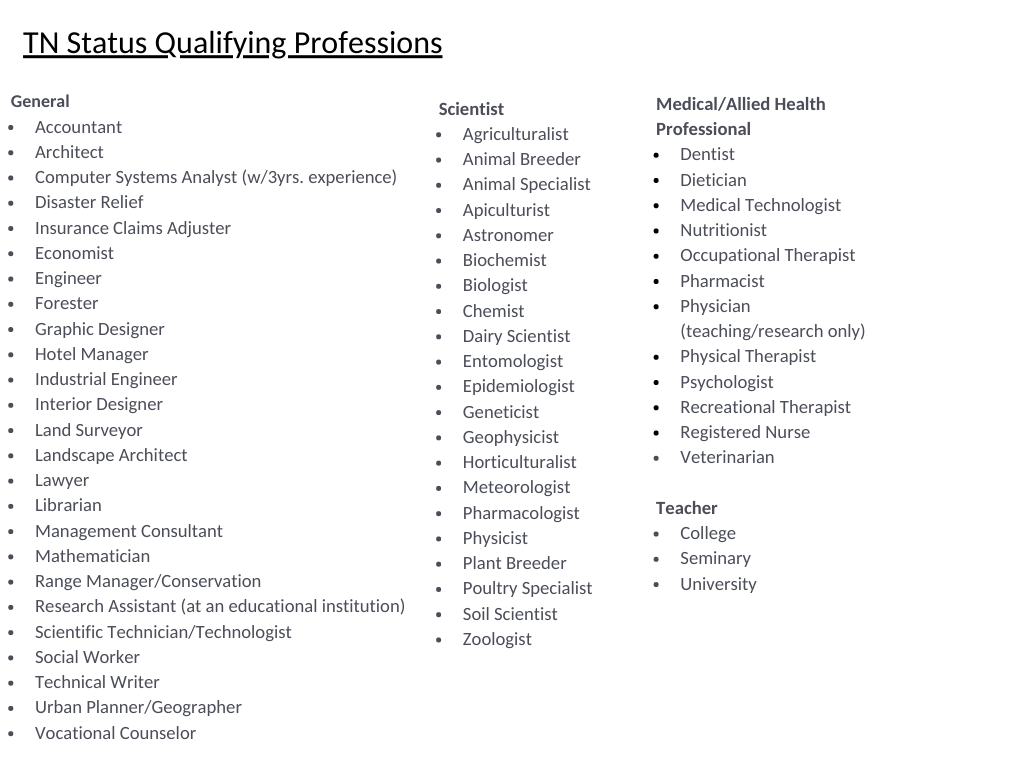Hiring E-3, 0-1 & TN Workers
E-3 Temporary Worker Status
E-3 temporary worker status is a nonimmigrant status used to bring an Australian citizen to the United States temporarily to employ them in a position which requires specialized training or knowledge. To qualify for this category, the position must require at least a Bachelor’s degree in a specific field and specialized training and knowledge to perform the job duties. Staff positions which require any Bachelor’s degree or no degree at all do not qualify. The E-3 may be granted in increments of up to two years at a time and may be extended indefinitely. E-3 dependents can apply for work permission from U.S. Citizenship & Immigration Services.
For more information, see the E-3 Request Form.
O-1 Extraordinary Ability Status
O-1 status may be used to facilitate the employment of international individuals of extraordinary ability in the sciences, education, business and athletics. To qualify for this status, the individual must be nationally and/or internationally recognized as being at the forefront of their field and must submit extensive documentation demonstrating the extraordinary ability. The O-1 is generally used only when all other options have been exhausted. The O-1 may be granted initially for up to three years and may be extended on a yearly basis. O-3 dependents cannot work in the United States.
For more information, see the O-1 Request Form.
TN Trade NAFTA Status
TN status is a non-immigrant visa classification available to Canadian and Mexican nationals who are qualified members of certain pre-determined occupations (see the chart below). Qualifying professions require at least a baccalaureate or licenciatura degree and/or, in some instances, professional licensure or certification. The TN may be granted in increments of up to three years at a time and may be extended indefinitely. Although it is similar to the H-1B classification, TN status contains some notable advantages over H-1B visa status. Dependents of a TN are given TD status and may not be employed in the United States.
Advantages of TN Status
In many instances, TN status may be obtained more quickly. If the individual is subject to the two-year home residence requirement [212(e)] stemming from J-1 status, s/he may be able to obtain TN status without obtaining a waiver of the requirement. There is no cumulative total limit on the time a Canadian or Mexican citizen can be in TN status. TN status may be granted in increments of up to three years.
Disadvantages of TN Status
There is no dual intent like the H-1B; therefore, it may be problematic to apply for permanent residence while in TN status.
Procedures
Canadians never need to obtain a visa stamp from a U.S. Embassy or Consulate. They may apply for TN status at the port of entry into the United States. No prior pre-approved application is needed. Mexicans must apply for a TN visa at a U.S. Consulate in Mexico.
Documents Needed for TN application at Port of Entry or U.S. Consulate
- Proof of Canadian or Mexican citizenship
- Appointment letter
- TN Sample Letter of Support from the employer that outlines:
- Job description
- Anticipated length of stay (three year maximum)
- Qualifications needed for the job
- Terms of employment (salary, hours, etc.)
- Evidence the Canadian/Mexican meets any applicable licensure requirements for the position
- His/her professional qualifications (diplomas, licenses, etc.)
- Application fee
Extension
A TN has two options for extending his/her TN status:
- Canadian: Travel to the U.S.-Canadian border with a letter from his/her employer and apply for TN status. The individual must pay a processing fee at the time of application.
Mexican: Travel to the U.S. Consulate in Mexico with a letter from his/her employer and apply for a TN visa renewal. - Apply for an extension through USCIS. For more information, see the TN Extension Request Form site. Please allow 3-4 months for processing.

